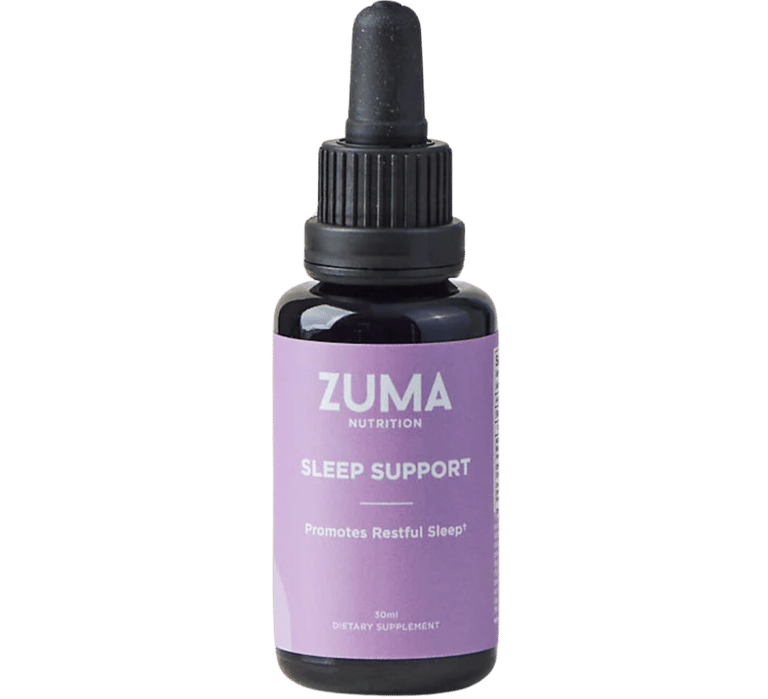

The Essential Sleep
Sleep is not just a time for your body to rest; it is a vital process that underpins every aspect of your health. While diet and exercise are essential, sleep comes first. Without proper sleep, the benefits of nutrition and physical activity are significantly diminished. Let’s explore why sleep is the foundation of well-being and how you can optimize it for a healthier life.
Why Sleep is the Most Important Pillar of Health
Restoration and Repair
During sleep, the body undergoes critical repair processes:
Muscle repair and growth occur in deep sleep (stages 3 and 4 of the sleep cycle).
Tissues regenerate, and immune cells combat inflammation and infection.
The brain flushes out toxins, such as beta-amyloid, which is associated with Alzheimer’s disease.
Cognitive Function
Sleep is essential for memory consolidation, decision-making, and creativity.
Without enough sleep, your brain struggles to process information, leading to reduced focus and productivity.
Chronic sleep deprivation increases the risk of neurological disorders like dementia and depression.
Hormonal Balance
Sleep regulates hormones such as:
Leptin and Ghrelin: Control hunger and appetite. Poor sleep increases ghrelin (hunger hormone) and decreases leptin (satiety hormone), leading to overeating.
Cortisol: Stress hormone levels normalize during sleep; lack of sleep keeps cortisol elevated, contributing to anxiety and weight gain.
Growth Hormone: Released during deep sleep, essential for muscle growth, cell repair, and overall vitality.
Immune System Strength
Sleep enhances the immune response, helping your body fight infections and recover from illness.
Chronic sleep deprivation weakens the immune system, making you more susceptible to colds, flu, and chronic diseases.
Metabolic Health
Inadequate sleep disrupts blood sugar regulation, increasing the risk of type 2 diabetes.
Sleep deprivation can lead to insulin resistance and weight gain, regardless of diet or exercise.
Mental Health
Good sleep is crucial for emotional regulation and resilience.
Chronic sleep deprivation increases the risk of anxiety, depression, and mood swings.
Athletic Performance and Recovery
Athletes prioritize sleep because it enhances reaction time, endurance, and recovery.
Sleep reduces the risk of injury and supports consistent performance.
Why Sleep Comes Before Diet and Exercise
Diet and Sleep Are Interconnected
Sleep deprivation leads to cravings for unhealthy, high-calorie foods.
Poor sleep disrupts gut health, impairing nutrient absorption.
Without proper sleep, even the healthiest diet can’t optimize metabolism.
Exercise Depends on Sleep
Sleep is essential for muscle recovery and repair after workouts.
Lack of sleep reduces energy levels, motivation, and coordination, increasing the risk of injury.
Sleep deprivation impairs strength, endurance, and overall performance.
How Much Sleep Do You Need?
Adults: 7–9 hours per night
Teenagers: 8–10 hours per night
Children: 9–11 hours per night
Infants: 14–17 hours per day
Quality matters as much as quantity. Deep sleep (slow-wave sleep) and REM sleep are critical stages for physical and mental health.
Signs You’re Not Getting Enough Sleep
Frequent fatigue or low energy
Irritability and mood swings
Difficulty concentrating
Cravings for sugar and junk food
Frequent colds or infections
Poor performance at work or in workouts
Optimizing Your Sleep: Practical Tips
1. Create a Sleep-Friendly Environment
Darkness: Use blackout curtains and avoid screens 1-2 hours before bed.
Cool Temperature: Keep the room slightly cool (60–67°F or 15–19°C).
Comfortable Bedding: Invest in a supportive mattress and breathable sheets.
Noise Reduction: Use white noise machines or earplugs if needed.
2. Develop a Consistent Sleep Schedule
Go to bed and wake up at the same time every day, even on weekends.
Align your schedule with your natural circadian rhythm for optimal sleep quality.
3. Manage Stress and Relax Before Bed
Practice relaxation techniques such as deep breathing, meditation, or yoga.
Write down worries or a to-do list to clear your mind.
4. Limit Stimulants and Alcohol
Avoid caffeine after 2 PM and limit alcohol, as it disrupts REM sleep.
Opt for calming herbal teas, like chamomile or valerian root.
5. Get Natural Light Exposure
Spend time outdoors during the day to regulate your sleep-wake cycle.
Avoid bright screens and blue light in the evening.
6. Exercise Regularly
Engage in physical activity during the day, but avoid intense workouts close to bedtime.
7. Follow a Sleep-Friendly Diet
Eat magnesium-rich foods (e.g., nuts, spinach) to relax muscles.
Avoid heavy meals or spicy foods 2-3 hours before bedtime.
8. Track Your Sleep
Use a sleep tracker to identify patterns and areas for improvement.
The Long-Term Benefits of Prioritizing Sleep
Improved mental clarity and productivity
Enhanced mood and emotional stability
Stronger immune system
Healthier weight and metabolism
Lower risk of chronic diseases, such as heart disease, diabetes, and Alzheimer's
Increased longevity and vitality
How Magnesium Supplements Can Significantly Improve Sleep
Magnesium is a vital mineral involved in over 300 biochemical processes in the body, including those that regulate sleep. While it’s abundant in foods like nuts, seeds, and leafy greens, many people are deficient due to poor dietary habits, stress, or medical conditions. Supplementing with magnesium can profoundly enhance sleep quality and duration by addressing underlying physiological and neurological processes.
The Role of Magnesium in Sleep
Regulates Sleep Hormones
Magnesium helps regulate melatonin, the hormone that controls your sleep-wake cycle.
Adequate magnesium levels signal your body to prepare for rest as evening approaches.
Calms the Nervous System
It binds to GABA (gamma-aminobutyric acid) receptors, the brain’s primary inhibitory neurotransmitter.
GABA promotes relaxation and reduces nerve excitability, helping you feel calm and ready for sleep.
Reduces Stress and Anxiety
Magnesium reduces the release of cortisol, the stress hormone, which can disrupt sleep if elevated.
It also supports serotonin production, a precursor to melatonin, fostering better mood and relaxation.
Improves Deep Sleep
Studies show magnesium can increase slow-wave sleep, the deep, restorative phase of the sleep cycle where your body repairs tissues and consolidates memories.
Relieves Muscle Tension
Magnesium relaxes muscles by regulating calcium levels, reducing tension, cramps, and restless leg syndrome that might keep you awake.
Supports Circadian Rhythms
Magnesium interacts with your circadian clock, helping synchronize your body’s internal rhythm with the day-night cycle.
Who Benefits Most From Magnesium Supplements for Sleep?
People with insomnia or trouble falling asleep
Those experiencing stress or anxiety
Individuals with restless leg syndrome
People with chronic pain or muscle cramps
Those who consume a diet low in magnesium-rich foods
Individuals with conditions like PCOS, type 2 diabetes, or digestive disorders that impact magnesium absorption
How to Take Magnesium for Better Sleep
Dosage: Most adults need 200–400 mg of magnesium daily, but consult a healthcare provider for personalized advice.
Timing: Take magnesium 1–2 hours before bedtime for optimal effects.
With or Without Food: Depending on the type, magnesium supplements can be taken with food to reduce the risk of stomach upset.
Complementary Nutrients: Combine with vitamin B6 or zinc to enhance magnesium absorption and effectiveness.
Additional Benefits of Magnesium for Sleep-Related Issues
Reduces Nighttime Wakefulness
By stabilizing blood sugar levels and calming the nervous system, magnesium helps you stay asleep longer.
Eases Restless Legs Syndrome
Magnesium relaxes overactive muscles and reduces involuntary twitching, allowing for more restful sleep.
Combats Fatigue
Poor sleep can lead to a vicious cycle of exhaustion. Magnesium replenishes energy levels by supporting ATP (cellular energy) production.
Safety and Precautions
Side Effects: High doses may cause diarrhea; start with a lower dose and increase gradually.
Medical Conditions: If you have kidney disease or are taking medications like diuretics or antibiotics, consult a doctor before supplementing.
Quality Matters: Choose high-quality magnesium supplements from trusted brands to ensure efficacy and safety.
USE CSUN FOR 15% OFF
Zuma Nutrition's Sleep Support Tonic is formulated with natural ingredients aimed at enhancing sleep quality by promoting relaxation and calming the central nervous system. Key components include:
Valerian Root Extract: Supports the production of gamma-aminobutyric acid (GABA), an inhibitory neurotransmitter that fosters relaxation and reduces the time required to fall asleep.
Blue Vervain Extract: Known for its calming properties, it helps soothe the central nervous system, encouraging deep calm and relaxation.
The tonic is presented in a water-soluble liquid form, which may offer better absorption compared to capsules or powders. Additionally, the therapeutic extraction process aims to increase the potency of the active ingredients.
By combining these herbal extracts, the Sleep Support Tonic seeks to promote restful and deep sleep, supporting overall relaxation and recovery.
USE CSUN FOR 15% OFF




